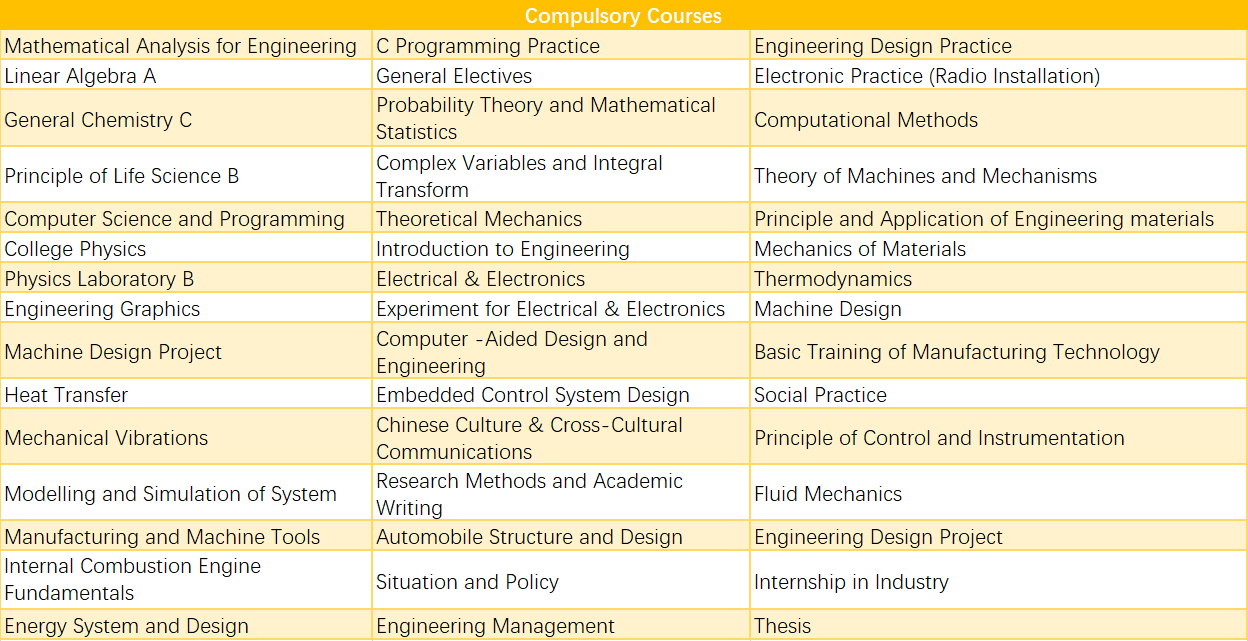Mechanical Engineering
| Starting Date | September 2023 |
|---|---|
| Degree Awarded | Bachelor |
| Tuition Fee: | 30000 RMB/year |
| Language | English |
| Duration of Study | 4 Years |
| Application Fee | 300 USD |
| Course Introduction | |
The bachelor’s degree program provides a professional and application-oriented scientific education, and enables students to gain fundamentals of mathematics, natural sciences and engineering, as well as the in-depth knowledge of specific subjects in Mechanical Engineering. Students can use engineering principles, tools and technologies to identify, formulate and solve engineering problems in mechanical engineering facing the challenges in the future, with the understanding of the impacts in a global and societal context. Students are educated to improve the competence in scientific methodology, research skills, problem solving, creativity, leadership and communication skills in multidisciplinary team, and ability to engage in lifelong learning, with global vision and social responsibility. The curriculum emphases on fundamental aspects of design, mechanics, materials science, thermal and fluid mechanics, and manufacturing. The program also incorporates courses in electronics, computer programming, automatic control, computer-aided design, research methodology, and multicultural communication. There are also in-depth courses in design and application technologies of vehicle, engine, and energy systems. These courses are taught in theory and also in practice using the experiment and practice platforms in school of mechanical engineering. The program prepares students to become problem solvers and leaders to contribute to a wide range of industries and businesses, government, and academia. Students will be adaptive learners who continue to grow professionally by obtaining professional registration or certification, or by earning post-graduate degrees. By the time of graduation, our graduates will have: - the ability to use applied scientific knowledge and fundamental engineering knowledge to solve problems in mechanical engineering and related fields. - the ability to design and conduct experiments, as well as to analyse and interpret experimental data for mechanical engineering and related applications. - the technical ability to design mechanical devices or systems to meet desired needs within realistic constraints such as economic, environmental, social, political, ethical, health and safety, manufacturability, and sustainability. - the ability to develop and assess alternative designs of both mechanical and thermal engineering systems based on technical and non-technical criteria including their impact in a global, economic, environmental, and societal context. - the ability to use the relevant tools necessary for practice in mechanical engineering and related fields. - the ability to recognise and achieve high levels of professionalism in their work. - the ability to assume leadership roles, function on multidisciplinary teams, and communicate effectively and persuasively. - a critical understanding of ethical responsibility. - a knowledge of global and contemporary issues. - a recognition of the need for an ability to engage in lifelong learning and development.
|
|
